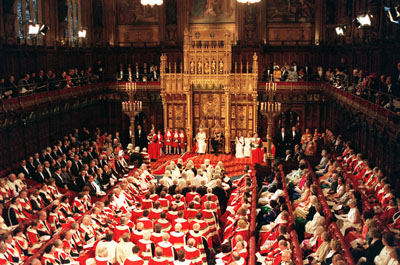As the Greek political establishment remains preoccupied with the domestic repercussion of the huge FYROM naming protest, a report prepared for the House of Lords calls on the British government to push Skopje’s admission to Nato, even without a settlement on the naming and identity issues.
“The Government should support measures to help Macedonia join NATO, with or without a solution to the name issue,” the report states.
It was drafted by the Select Committee on International Relations, which is appointed by the House of Lords in each session “to investigate the United Kingdom’s international relations”.
“NATO membership and cooperation could enhance the peace and stability of the region. We agree with the Government’s continuing support for the membership ambitions of Bosnia and Herzegovina and Macedonia. Providing they meet the requirements for membership, their accession would be a welcome step towards greater stability in the region,” the text read.
The report also cites a 17 January, 2017, speech delivered by Prime Minister Theresa May, in which she “identified the Western Balkans as a region in which the UK government has played, and will continue to play, an active role in promoting European prosperity, stability and security”.
At the same time, the Commonwealth Office (FCO) stated, “In recognition of the challenges in the region and our interests, we plan to increase our level of engagement and spend in the coming years.”
Underlining that the UK this year will host the Western Balkans Summit, the report suggests that London is intent upon establishing a stronger foothold in the Balkans.
“This initiative, coming at an important stage of the Brexit negotiations, would demonstrate that the Government is indeed not leaving Europe when it leaves the EU.”
FYROM eagerness for Nato membership
The parliamentary report presents an overview of Skopje’s stance towards Nato membership, which takes precedent over EU accession.
“In Macedonia NATO membership is popular (and a more immediate priority than EU membership). The Foreign Minister, Nikola Dimitrov, said that over 70% of the population were in favour of joining. Mr Dimitrov said that membership would prove “that Macedonia is here to stay and within these boundaries”. However, progress towards membership has been blocked by Greece’s objections to the country’s name,” the report noted, acknowledging that Skopje’s Nato accession would be difficult without a settlement.
“The Government’s position was that the UK would “encourage discussions between Athens and Skopje … using and identifying opportunities where we can offer practical and more active support.”
George Gilson



